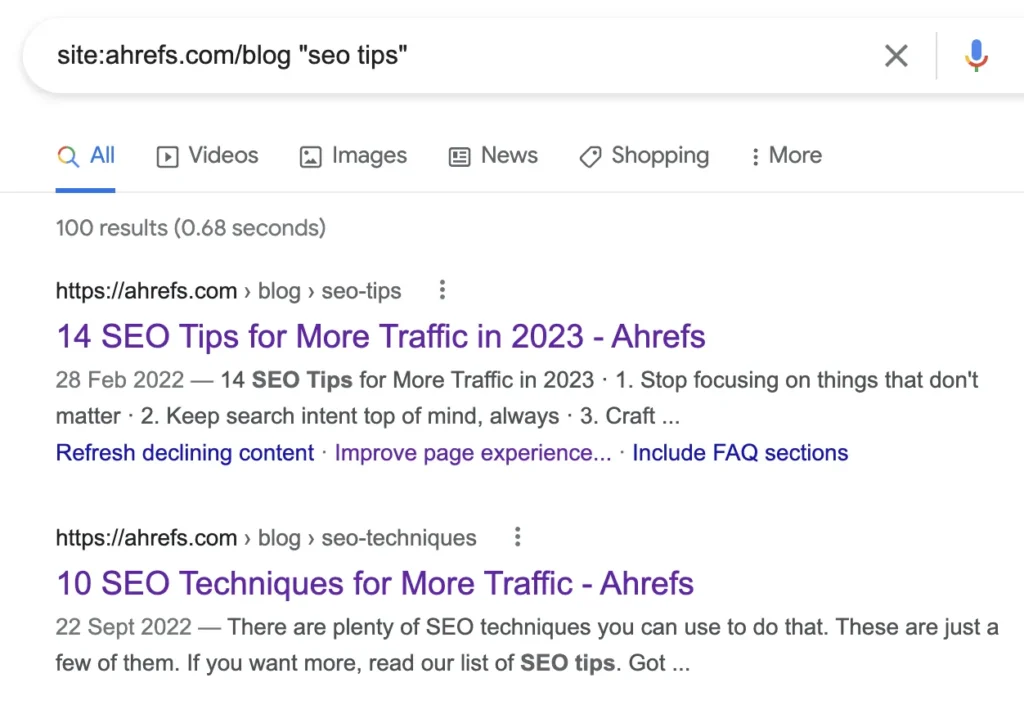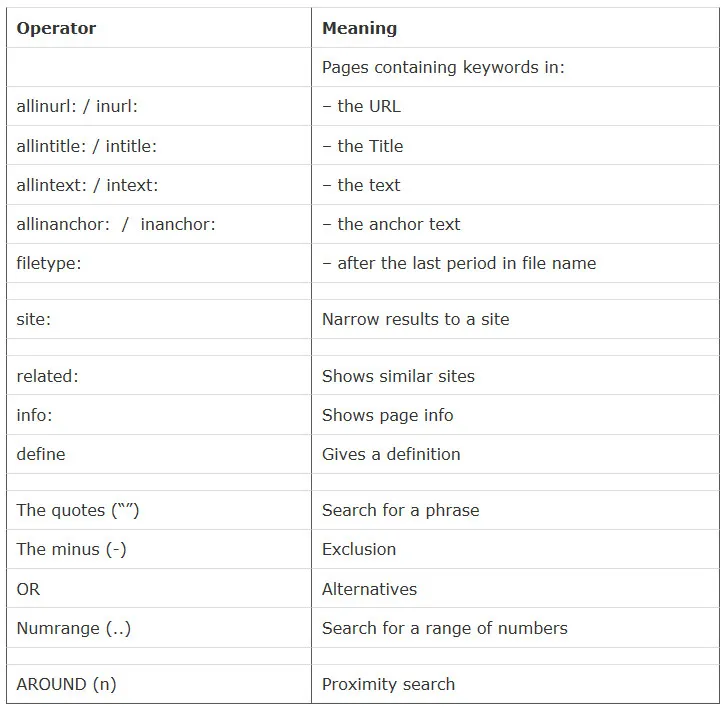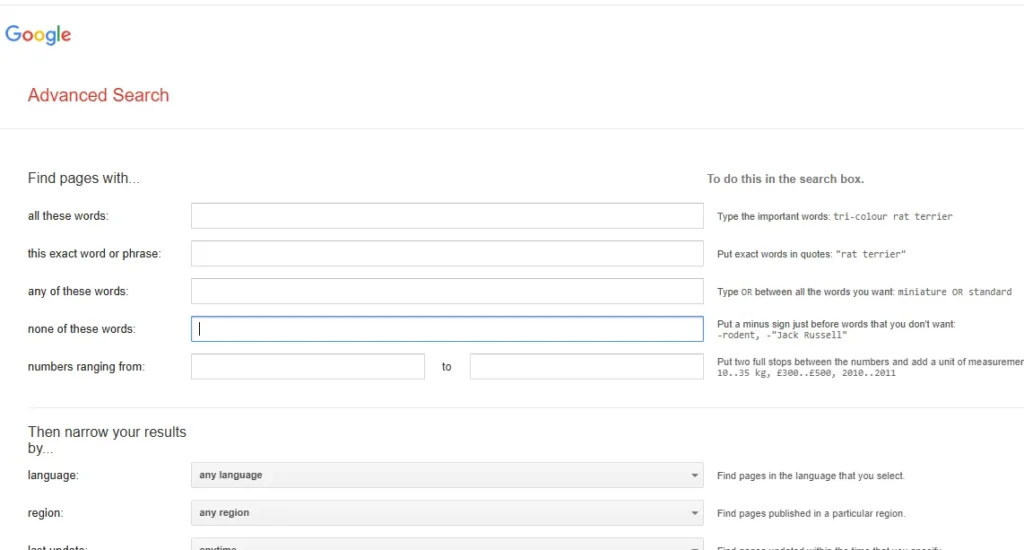If you have used Google for some time you most probably have encountered a situation, even if for once, where a search query resulted in irrelevant results not matching the search intent.
But you want specific answers to your queries. Not some random search results that don’t match what you want to find.
Enter search operators.

Search operators are such values that help you refine your search results and get you the answer you want.
For this specific issue as described above, you can try one thing. And, that is excluding specific words from Google searches.
So, how do you exactly do that? How to exclude words from Google searches?
Here, you will learn some techniques that will help you refine your search results and get you the answer you are looking for.
Finding exact information on Google
The only aim of Google is to give its users the best results. Aiming that, there have been many algorithmic updates that roll out periodically. As such Google’s algorithm today is much more advanced and refined than what it was when it started.
However, even with the updates, it is still sometimes difficult to find the exact results that you are looking for. Many user searches result in a mix of relevant and irrelevant results from this search engine.
However, there is more to search engines than most people realize. There are several tricks you can apply to get the best results or the results you are looking for.
Effective use of Google search is something smart to learn that will help you on many occasions.
What are search operators
Search operators are commands that allow you to be more specific with your Google search.

In other words:
These operators help you communicate better with Google and ask exactly what you are looking for.
“Search operators” is a term related to SEO and digital marketing. If you are interested in learning more SEO terms, you can learn it from our glossary.
They help you to return the best results possible matching your search intent.
Here is a specific technique for excluding words from Google search.
How to exclude words from Google search
You might be thinking why you want to exclude words from Google search.
The answer is that by excluding specific words from your search results you will be able to get the best results possible matching your user intent.
Take a look at this example.

This search for “music classes near me” returns results for different types of music classes that may lack specifications.
This type of broad search query may return irrelevant results that you do not want.
In other words, broad search query = broad search results
Now, you can ask Google to be more precise.
Say, if you want to search specifically for flute classes, you can ask Google to exclude other types of classes by excluding specific terms from search results.
Ready to learn how? Here’s how to do it.
Use the minus sign
The basic way to exclude words from Google search results is to use the minus (-) sign before the term you want to exclude.
For example, if you want to search for “vacation locations in Europe,” but you do not want to visit Italy, you can search for: vacation locations in Europe – Italy.
This will show you the results that you want to find, i.e., it will show you the places you want to visit in Europe, excluding Italy.
Take another example.
Say you are looking to buy a good laptop and you search for the term “best laptops.” This will return the results of the finest laptops in the market.
But if you do not want to buy a gaming laptop, you must exclude it from the search results. The search term you would want to search Google for this specific requirement is:
“Best laptops – gaming.”

This will return results that exclude gaming laptops. Google will understand that you don’t want to buy gaming laptops and will exclude any website or results that include gaming laptops in them.
Ways to use the minus sign
There are a few common ways to use the minus sign to exclude things from search results. Here are some of them.
Exclude precise terms using quotes (“”)
You can use the quotation marks (“”) to exclude any results that mention a specific phrase or term.
For example, to find the best vegan recipes you would normally search for “best vegan recipes,” but if you want to exclude tofu, you should search for best vegan recipes – “tofu.”

Avoid specific websites
You can also avoid specific websites from your search results.
Say, you don’t want results to be displayed from a particular website. You can exclude them from your search results by using the site: operator along with the (-) sign.
For example, you want results for healthy recipes but you don’t want results from a particular website, say, Pinterest.
So, you must search for “healthy recipes -site:pinterest.com”

As you can see, the use of this search operator displays results that do not include Pinterest but show recipes from other websites.
Excluding unwanted file formats
It’s also possible to exclude specific file formats from search results by using a specific operator termed filetype:
For example, say, you want to get results from a specific search query without showing a particular file type.
So, you can search for:
Climate change report -filetype:pdf
This will tell Google that you do not want to see PDF results for this particular search.

As you can see, this search displays web pages, articles, and other file formats without showing PDFs.
Advanced search
There is one more way to exclude search terms from a results page and that is using the advanced search functionality.
Here is how to access it.
Go to google.com/advanced_search, you will see something like this:

Now, you can see the field named: none of these words.
Type in any term you want to exclude from your search results in that field. Google will now return results without those terms.
Why using search operators to filter your results is important
You only want Google to show the results that you need. But Google’s algorithm is not perfect and may show results that are irrelevant because when you search, Google’s algorithm considers two things:
- What you typed
- The historical data that it knows about you
That’s where the power of search operators comes in. They help in a few ways to get the results that you want to find.
Here are a few ways search operators can be useful.
More relevant, updated, and valuable results
When you cut off words, phrases, or websites from your search results, you get more relevant, updated, and valuable information, the exact information you are looking for.
Find your information more quickly
The best benefit of excluding words from Google search is the amount of time it will save you.
With the results being relevant and updated, you will find the information you are looking for more quickly.
Say you want to buy a mobile phone but not one from Samsung.
You can use the command: smartphones 2025 -Samsung

This has, as you can see, resulted in smartphones from brands other than Samsung. Thus, it can help you make your buying decision easier.
Conclusion
How to exclude words from a Google search is a pertinent question that you now have the answer to. This trick can be more beneficial than you can think of.
Above, we have discussed some of its benefits. But you may find more uses for this technique.
If you are struggling with your link building activities you can contact us for the finest link building services




